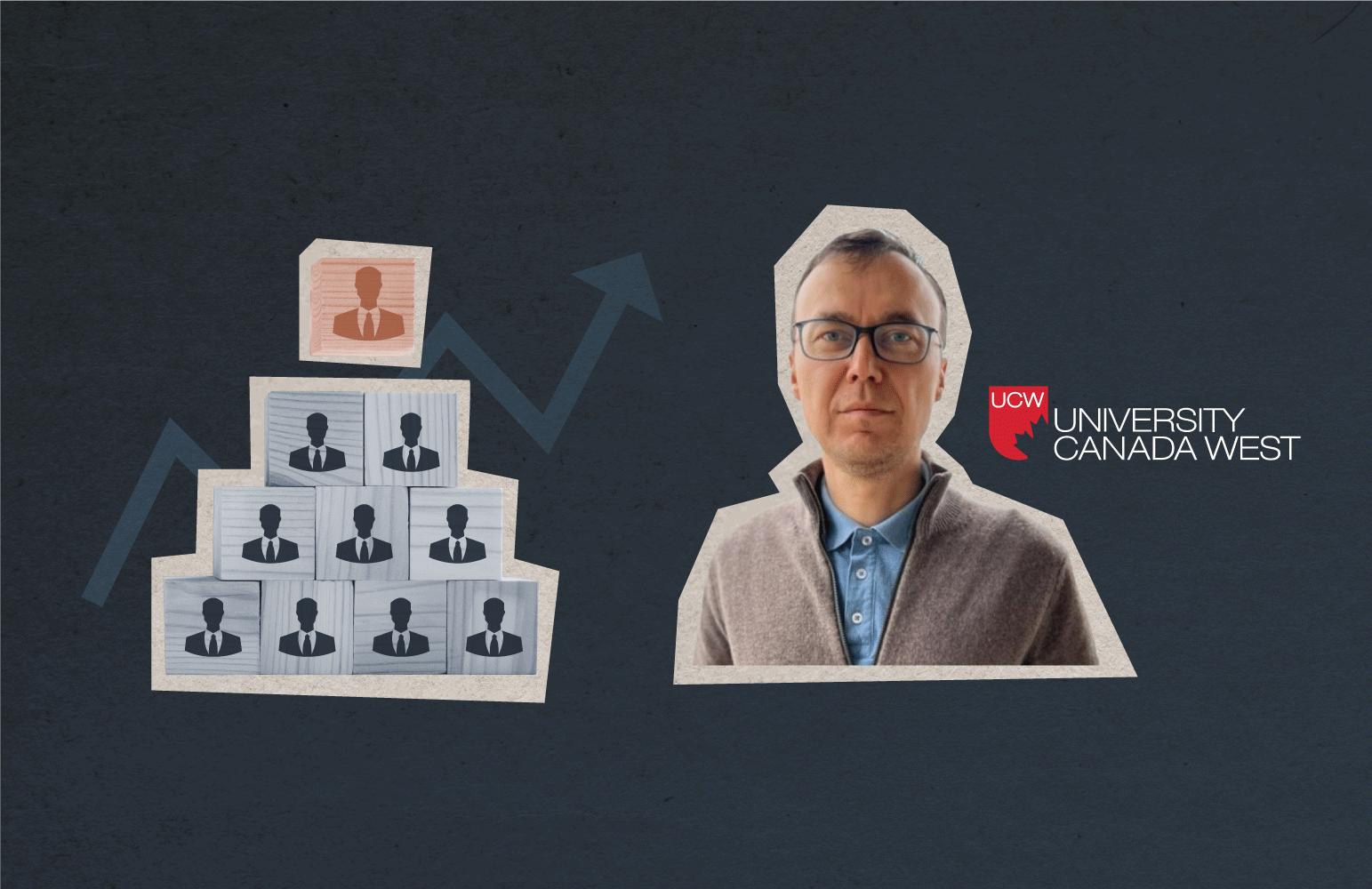With experience comes perspective, and Vitaly Sergeev has a wealth of both. After spending most of his career working in Russia, the HR specialist and his wife moved to Vancouver in 2023, where he’s now a member of the faculty at University Canada West.
Sergeev spoke with Goldbeck Recruiting, offering his observations on the HR, legal, and educational environments in both Canada and Russia. While noting many similarities, he also described some interesting contrasts.
Transitioning from Legal to Human Resources
Vitaly actually began his career as a lawyer, working five years in the field before switching to HR. He describes the synergies between the two disciplines.
“In the legal world you are normally dealing with risk, but from a negative side, preparing the business for the worst while handling contracts and negotiations,” says Vitaly. “In HR you prepare your business for the better by recruiting, training, developing, and retaining people; helping them create an infrastructure for growth in the company.”
He prefers the perspective offered by HR and 15 years in the field have seen him involved in processes ranging from recruitment to engagement and talent development.
Russian vs. Canadian HR
Vitaly Sergeev’s experience has allowed him to observe some differences between HR in Canada and Russia.
“The focus in Russian HR is mainly on recruitment and talent development, whereas here there’s more emphasis on labour relations,” he says. “In Russia, as in Canada, there’s an emphasis on gender diversity, but racial diversity is a greater factor in Canada than it is in Russia.”
Despite these differences, Vitaly says that the two countries are actually quite similar when it comes to most major HR processes.
Employment Law in Russia and Canada
According to Vitaly, Canada’s legal environment is also similar to that of Russia. “Some particulars are different but the major approach is the same,” he says.
One difference Sergeev notes is the relative emphasis placed on each side of the labour relationship.
“In Russia it’s more about protecting the employee, whereas in Canada the focus is on protecting employers,” he observes. “In Russia you can’t just fire an employee, you can only terminate them with cause or cut the position. In Canada you can eliminate an employee without cause if you pay them compensation.”
Vitaly has also experienced cultural differences in the workplace. “Overtime is kind of a cultural element in Russia,” he says. He notes that many of his colleagues at University Canada West are currently employed in their fields. “In Russia, if you have a full time job, you don’t have time for another job. There’s less emphasis on work/life balance.”
HR in Different Industries
Vitaly Sergeev’s breadth of experience not only comes from working in various parts of the world, but in differing industries as well. 13 years as Human Resources Director for a Japanese industrial automation and IT solution company found him dealing mostly with salespeople and other white collar employees. More recently, Vitaly spent five years in a similar role for a Swiss industrial mineral company, but dealt with more blue collar employees.
“The main processes are the same,” he says, listing recruitment, performance management, and talent management integration, “but the approach is different. Sales involves more online correspondence, where blue collar communication mainly takes place on site. You can’t make assumptions about what blue collar workers want, but have to ask them more frequently.”
Canada Under-Utilizing Skilled Labour Pool?
Like many Canadian immigrants, VitalySergeev believes that the Canadian economy is failing to fully tap into the potential of new Canadians.
“If you don’t have Canadian experience, we can’t proceed with you,” is the attitude Vitaly Sergeev has encountered. “Normally that’s the end of the interview.”
Educated in the US, Sergeev’s credentials are recognized by CPHR, even if his experience is not. He finds the situation confounding in light of the current labour crunch.
“I talk with HR people who complain about how difficult it is to find good candidates,” he says. “Meanwhile, there are many people in the immigrant community that are still trying to find the proper job.”
Being a Professor vs. Being a Student
With an MBA to his credit, as well as diplomas from several universities, Vitaly is no stranger to the classroom. Currently, however, he’s not taking lectures but delivering them, and he’s enjoying the process. Here, too, Sergeev sees some differences between the Canadian and Russian approaches.
“You have to come prepared to class and even do assignments before the first class,” he says of Western education. “In Russia we normally knew nothing about the subject beforehand.
Here the teacher is more like a partner that can help you develop. I like this approach.” According to Sergeev, the differences extend to children’s education as well.
“Western education is much more business oriented,” he says. “In Russia, my kids do more math and physics and have a lot of homework. Here the kids enjoy school, which I believe makes for a better learning environment.”
Self Realization Through Educating
Since moving to Vancouver, Vitaly has been involved with an organization that works to give school children a safe place to play after school. While he may be interested in returning to hands-on HR work, he’s currently enjoying his role in post-secondary education.
“It’s a win-win situation, you get a salary while advancing to another level of Maslow’s Pyramid,” he explains. “You receive a level of self-realization by passing your knowledge on to other people and helping to develop economies.”




